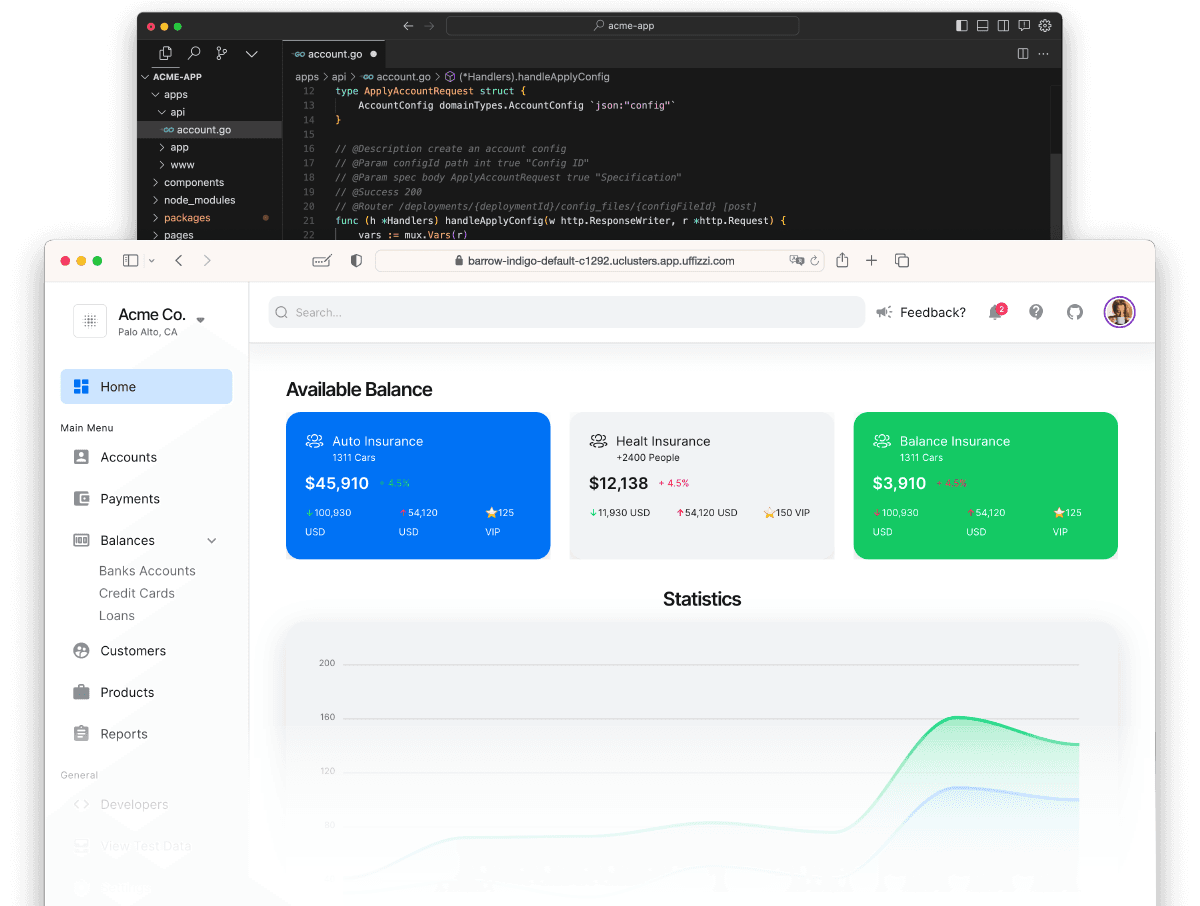Dev Clusters
Dev clusters are standard Uffizzi virtual clusters with additional developer tooling for building, testing, and auto-deploying your local project files. This means every time you save changes in your local IDE, your deployed services are hot reloaded, without having to rebuild your containers. Plus since the exectution environment is remote, you never have to worry about your local machine's resource constraints.

Dev clusters are great for everyday development and testing of your applications, especially for teams that want their development environments to more closely resemble production, such as using domains and TLS certificates for HTTPS, services meshes, and other components that aren't compatible with traditional local development.
Real-Time Deployments
Instead of rebuilding images on each save, your changes are serialized and sent to the dev cluster via gRPC calls, resulting in blazing fast refreshes ⚡️.
Uffizzi dev clusters offer a dramatic improvement in the development loop. By avoiding image rebuilds
and container restarts for every small code change, the uffizzi dev command significantly reduces the time between writing code and seeing
it run on the cluster. This process is transparent, requiring no extra action from the developer, and maintains a high fidelity
environment that closely mimics production.
Benefits
Cloud-based dev environments offer many benefits compared to traditional local development, including:
- Faster on-boarding for new team members
- Enforces consistency across developer environments
- More similar to production
- Access to more CPU and memory for resource-intensive applications
- Scalability and flexibility for microservices apps
- Faster initial build times
- Avoid accumulation of build artifacts on local machine
- Application components available at public URLs or IP addresses
- TLS certificates for HTTPS
- Better team collaboration via shareable links
Working with Dev Clusters
To start a dev cluster, run:
uffizzi dev start [CONFIG_FILE]where CONFIG_FILE is the path to a Skaffold file.
This command will provision a dev cluster on Uffizzi and start the Skaffold process on your local machine. Anytime you save local changes, they will be synced and redeployed to the remote cluster.
Getting Started
To learn more about incorporating Uffizzi dev cluster in your development workflo, see this guide Using Dev Clusters.